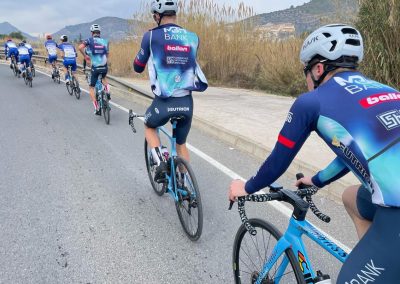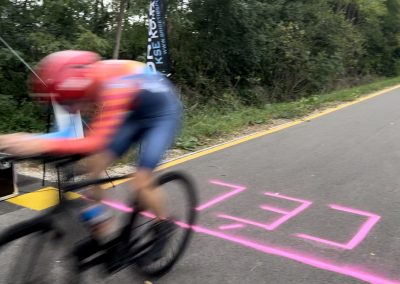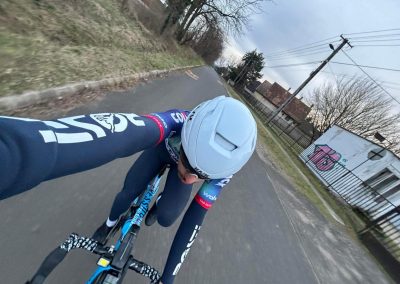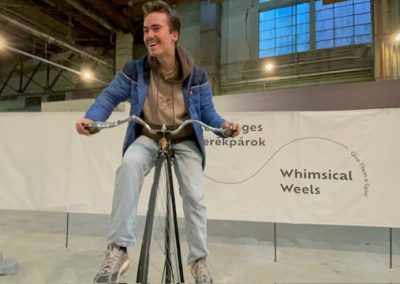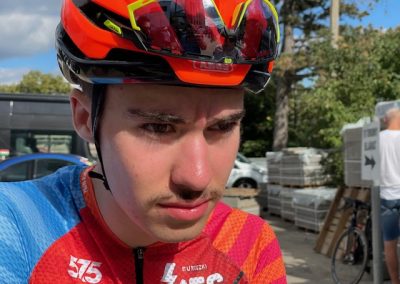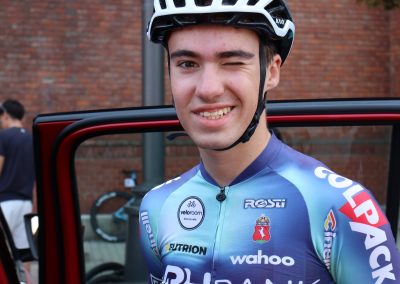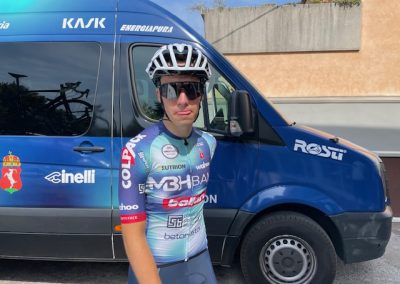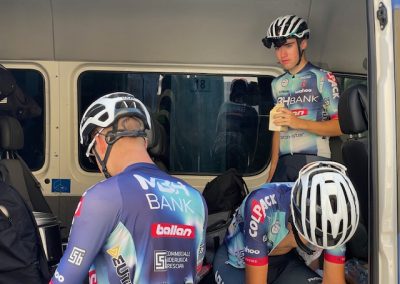Life in
the Team
BTS – 2022-2023
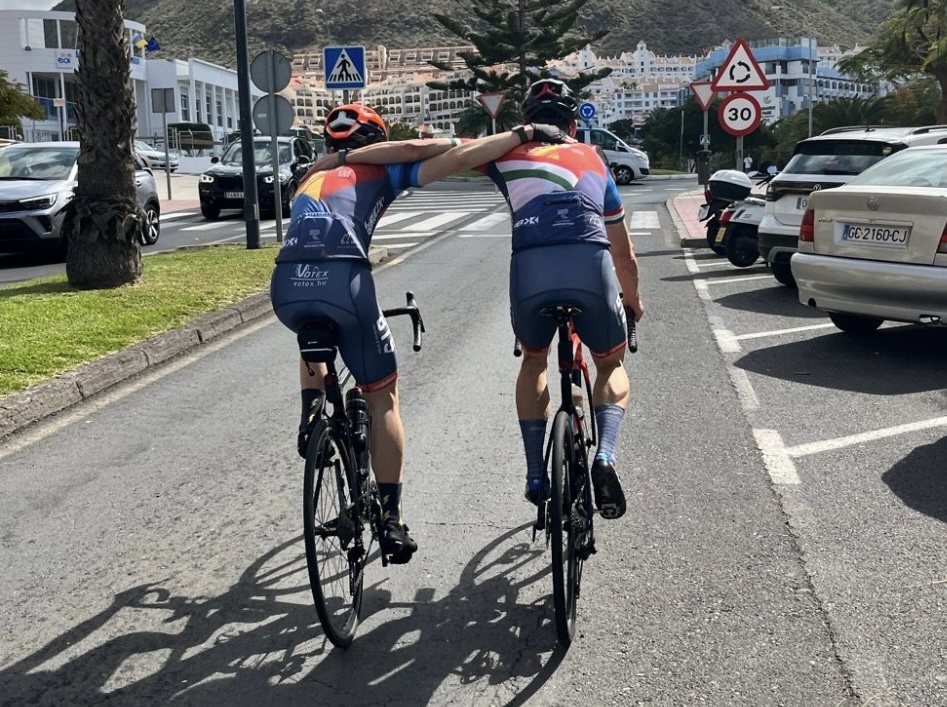
My first team was BTS – Buruczki Training System. We started working together in 2022.
Szilárd Buruczki is an outstanding coach, a 20-time (!!) Hungarian champion, a brilliant professional, and a good friend. If I were starting again, I would still turn to him. We had two incredible seasons together. He’s the one who taught me how to race. In that year and a half, my performance skyrocketed. He pushed me hard but always respected my limits while teaching me how to push beyond them, how to achieve more today than I did yesterday. From him, I learned the valuable lesson of always respecting your rivals and that every cyclist, no matter which team they ride for, is a friend.
I’ll never forget our first meeting. While we were waiting for my high school entrance interview, he asked, “Interested in a training camp?” I said, “Of course.” He replied, “Great, come with us—we’re heading to Tenerife in 10 days for three weeks.”
We had only known each other for about an hour, and he only knew me through Strava—though he had thoroughly reviewed it in advance. I couldn’t go that year due to my exams, but at the start of the next season, I joined them, and my progress was like a rocket.
At BTS, I learned that a team is like a family. I was the youngest on the team by far, with the next closest teammate being 10 years older than me. But they didn’t treat me like a kid—they took me seriously, yet I received the same love as the youngest sibling in a family. Every minute with that team was pure joy, and I will always look back on those times with gratitude. I owe so much to Szilárd and my teammates.
So why did I switch teams?
As I mentioned, my closest teammate in age was still 10 years older than me, so I had no one to work with in races. They competed in the Elite category, while I was still in U17. This was a huge disadvantage—in cycling, without drafting and teamwork, you can only struggle, like being in a permanent breakaway.
In my first year of U19, where the race distances are double what I had been racing, it was impossible to continue without teammates and teamwork. I talked with Szilárd, and we agreed. If I wanted to continue beyond U19, I had to start serious team efforts in the first year and get results in the second. Otherwise, the door would close. If you don’t secure a serious contract, usually with a foreign team, by the end of U19, you risk being stuck in the amateur ranks, no matter how well you perform.
Szilárd said that a good coach, when faced with this situation, has to do one thing—pat his rider on the head, wish them the best, and let them go. After all, he worked with me so I could take this next step.
It was hard for both of us, but we knew what was coming next was the result of our work together, the fulfillment of it. I look back on that time with great affection.
I already had friends in the peloton and a few ideas of where I would feel good, where the professional background was strong, and where I could work with talented teammates. At the top of the list was the MBH Bank Cycling Team. As it turned out, they had been keeping an eye on me too.
MBH Bank Cycling Team – 2024
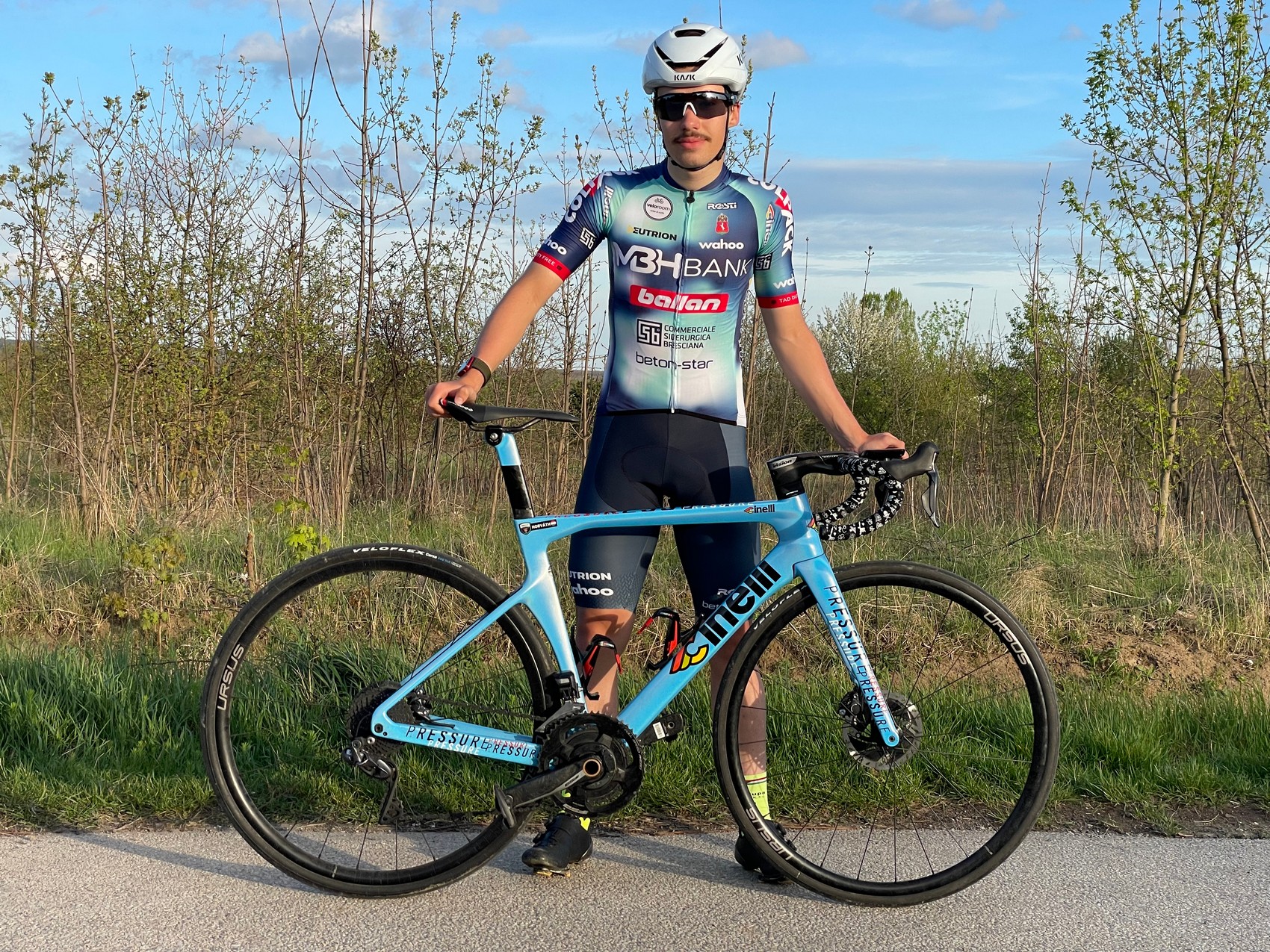
On November 10, 2023, I signed with the MBH Bank Cycling Team, and from the very first day of the 2024 season, my license has been with this team.
Why did I leave BTS, where I had felt so at home?
By the end of 2023, it became clear that I needed to join a team where I could race alongside at least 3-4 teammates in my age group. Riding solo in the peloton is a completely different game—when you’re in a well-positioned group of six riders, you can conserve up to 40% more energy compared to riding alone. And if such a group positions itself effectively in a bunch—surrounded by five riders on all sides—they can ride with over 80% energy savings compared to a solo breakaway.
Flip that around, and it shows how much stronger you need to be when you don’t have teammates. Winning a race also requires a lead-out: a coordinated team strategy executed consistently throughout the race, especially in the decisive moments. In U19 races, every move counts, so I needed to find a team where collaboration was possible.
Many of my new teammates were already familiar faces from previous races, and we had good relationships. The MBH is like the Ferrari of cycling—everyone dreams of racing here because this is where true teamwork happens, and everything operates as it should.
The team was originally known as Kecskeméti Első Sor Kerékpáros, Futó és Triatlon SE. It gained strength with the sponsorship of MKB Bank, and in 2023, following the bank’s merger, the team was rebranded as MBH Bank Cycling Team. Riders from this squad—whether under MKB or MBH—have always been among the best. Just like Ferrari, there’s a high bar to clear if you want to race here. I’m grateful for the trust they’ve placed in me, and I’m proud to represent this team.
When negotiations began, I didn’t yet know that MBH Bank would become the title sponsor of the Italian Team Colpack Ballan, a Pro Continental team. Now, both teams will work together on shared foundations, with the promise of creating pathways for Hungarian U19 riders to step up to the Pro Continental, and soon, even the ProTour level.
The team’s manager is Tamás Sáfár, and the sporting director is Zoltán Bebtó.
2025 – APPSolute Sport BTS SE – Back to the Future
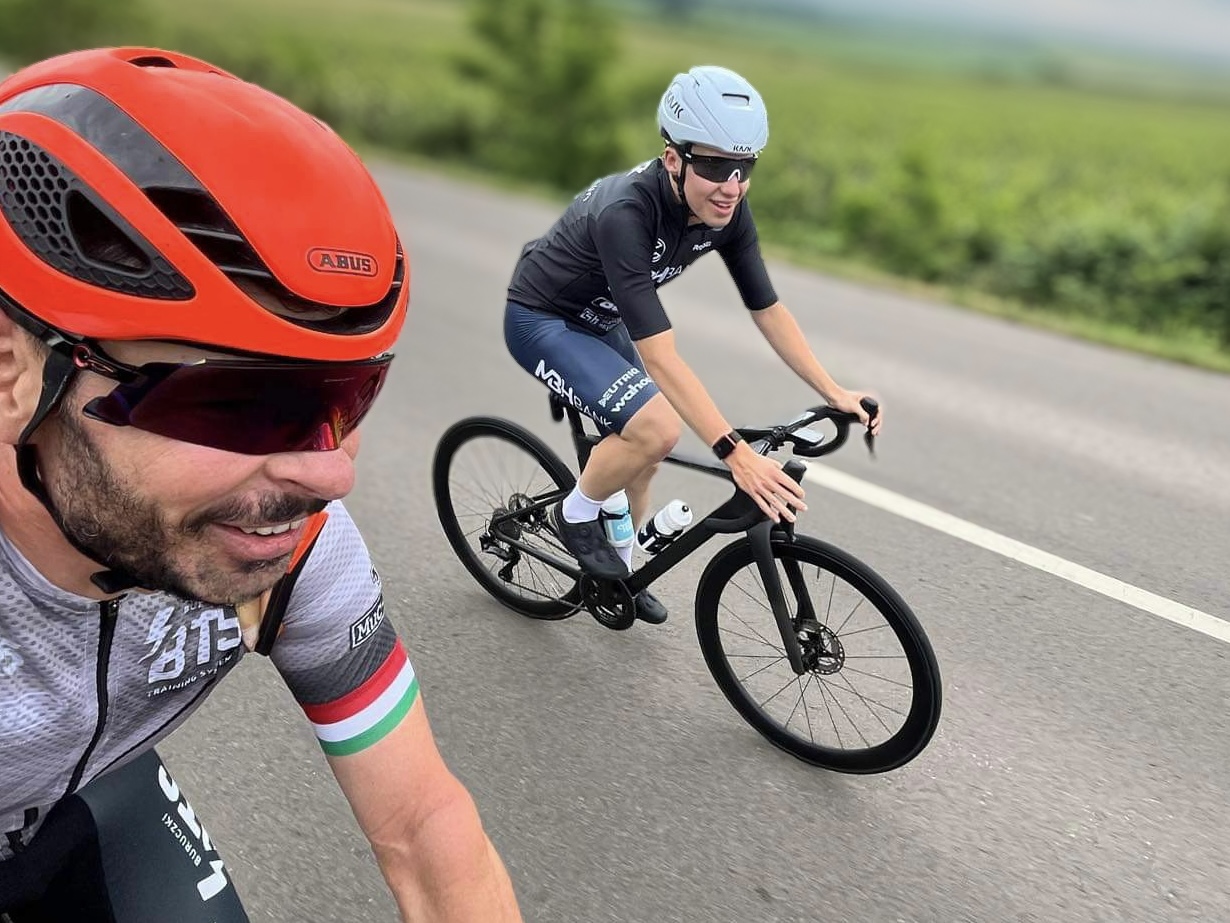
Life in a Cycling Team
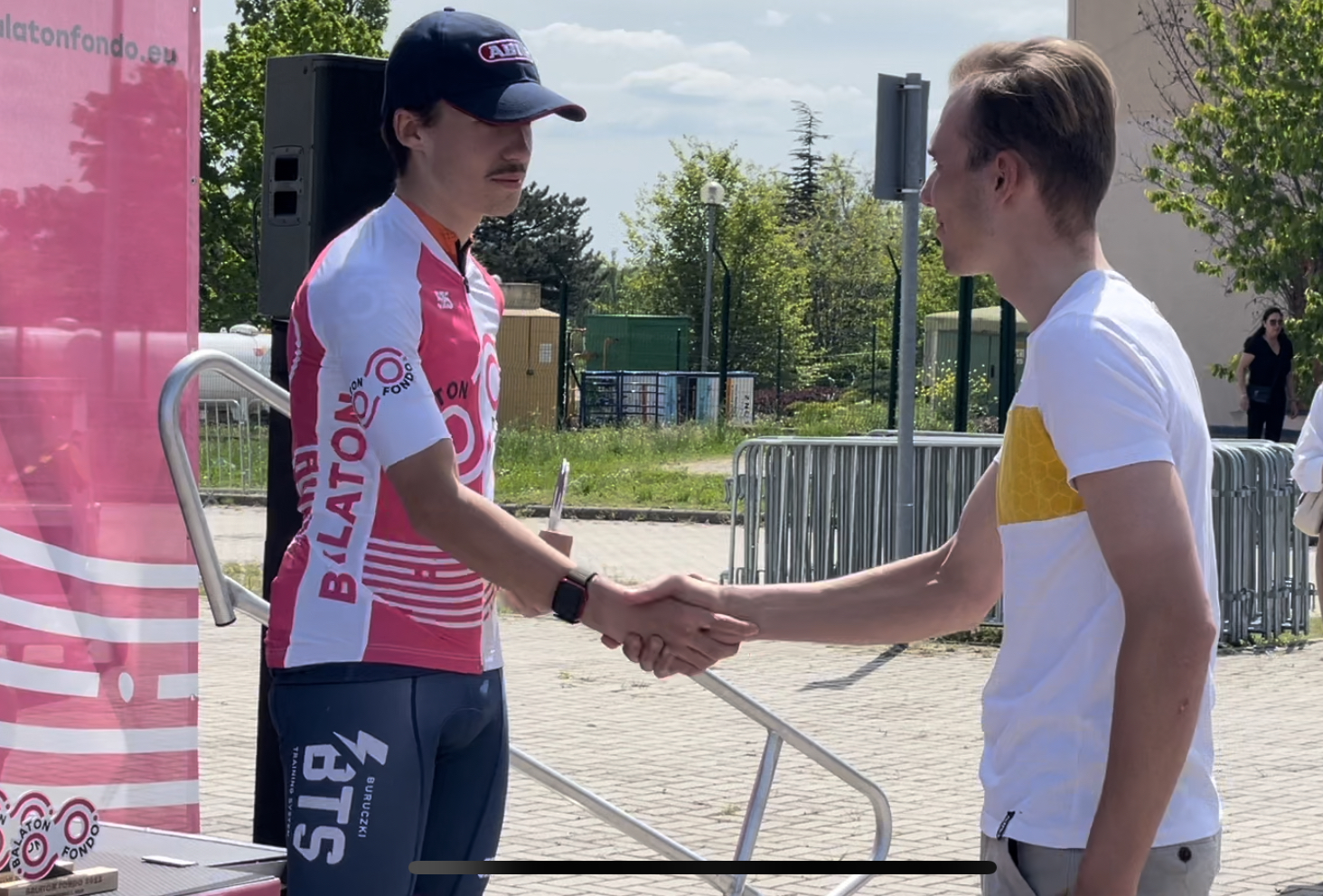
What Does Team Life Mean?
Friends
A good team is where everyone respects each other and stands up for one another like brothers. At lower levels, that might just mean hating the same things. But that’s pretty basic—you need much more than that. Shared goals, shared joy, camaraderie, and even shared moments of messing around.
I first experienced true team spirit with BTS. I was, so to speak, the “little brother”—the others were all at least 10 years older than me, often more. But they always treated me like an equal. I was part of the team with many elite (adult) riders, and I saw great examples of people supporting each other, enjoying each other’s company. While there was some playful teasing back and forth, everyone knew and respected the boundaries of good taste. We looked out for each other, helped each other, and were always honest.
I also learned from them to “love your rival, because they push you to perform better, and respect them, because you might be teammates tomorrow.” From the start, just like my teammates, I made an effort to get along with everyone in the peloton. I didn’t have any teammates in my age group, but I made a lot of friends among my competitors. And now, many of those competitors have actually become my teammates. Of course, on the course, we do everything we can to beat each other, but before and after the race, we chat, ask how it went with genuine interest, and acknowledge each other’s performances. We know better than anyone how much work goes into it.
Lack of time
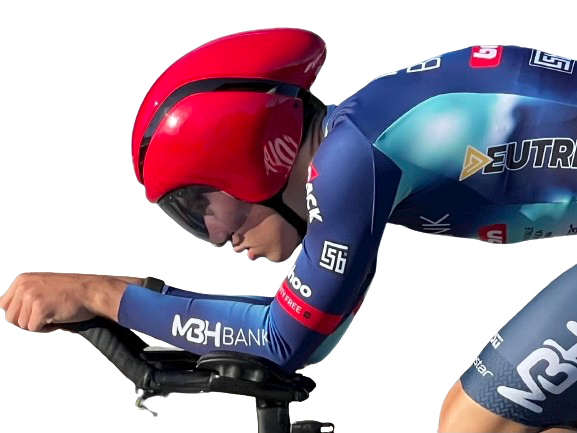
Overcoming failure
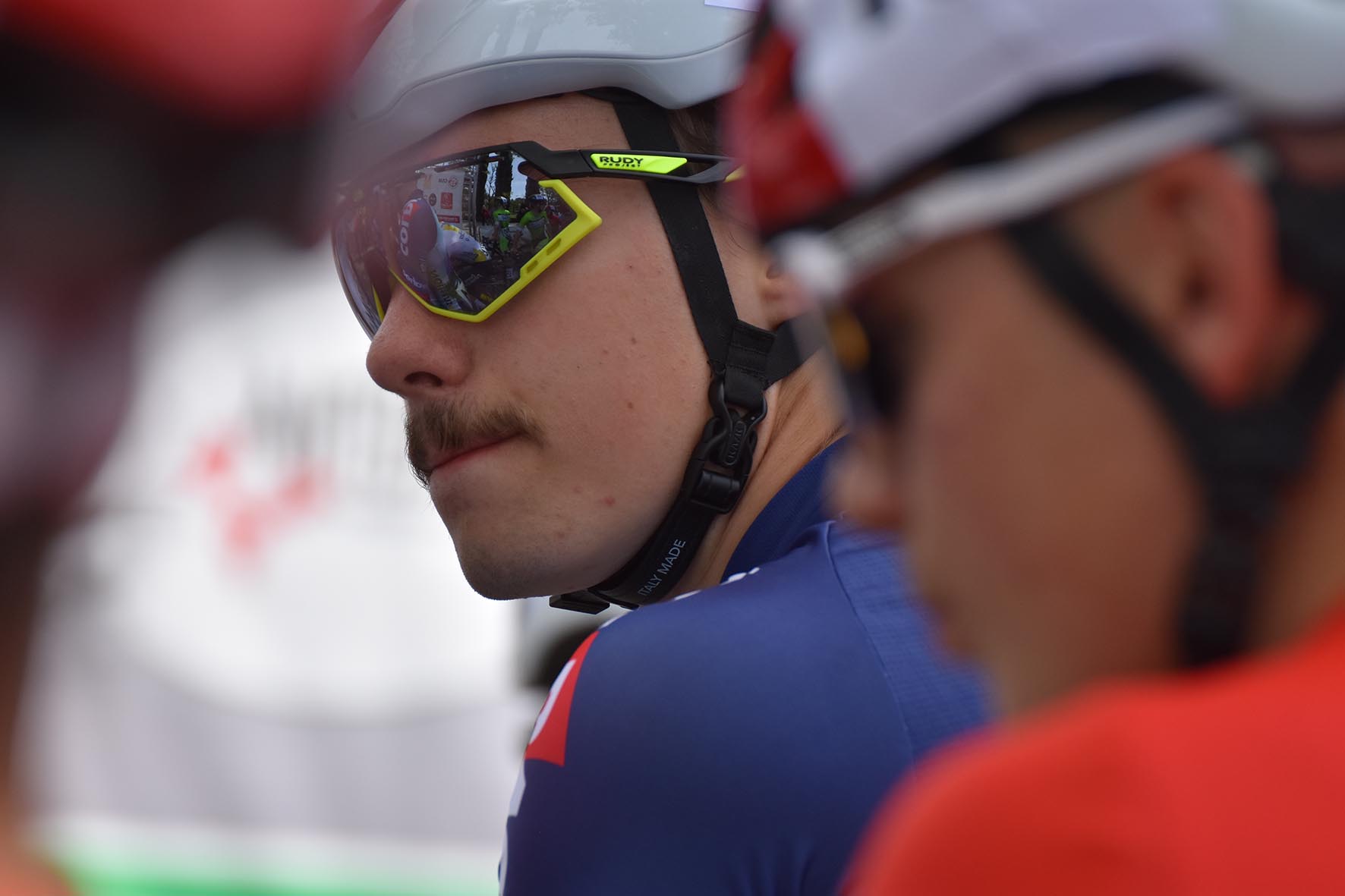
The higher the category you race in, the more you’ll be surrounded by people who have only ever won. When you first enter that group, you’re still confident, knowing you’ve arrived with a string of victories behind you. Yes, but so have they. And they’re all better than the people you’ve beaten so far.
When you’re a beginner, your progress is rapid. At first, you improve by minutes over the same distance. Then it’s by seconds, and finally, you’ll find yourself fighting for tenths of a second. Meanwhile, the races get tougher, the opponents get stronger, and the distances get longer. To win at this level, you need exponentially more power, and the risks become much greater. You have to be prepared for this.
For me, the first year in U17, after my second year in U15, was the year of harsh lessons. I suddenly found myself racing in a category with riders a year older than me, many of whom had been competing for years. The strength advantage they had was shocking.
I realized that I had no chance of winning, but I also saw that I was in a good position among the first-year riders. I started focusing on matching the pace of the stronger second-year riders, but I didn’t pressure myself with the need to win. By the end of the year, the podiums started to come, and by my second year in U17, I secured several confident victories and podium finishes.
The first year in U19 is the same as my first year in U17, only now the race distances are doubled, the training load is twice as much, I have twice as many race days, and I’m once again up against the riders who were second-years when I was a first-year in U17—only now, only the best of them remain.
At this point, you have a choice: either you buckle under the pressure, or you plan your way through it and build yourself up. You fall, you get back up. You fall again, you get back up again. That’s the right decision.
Fighting burnout
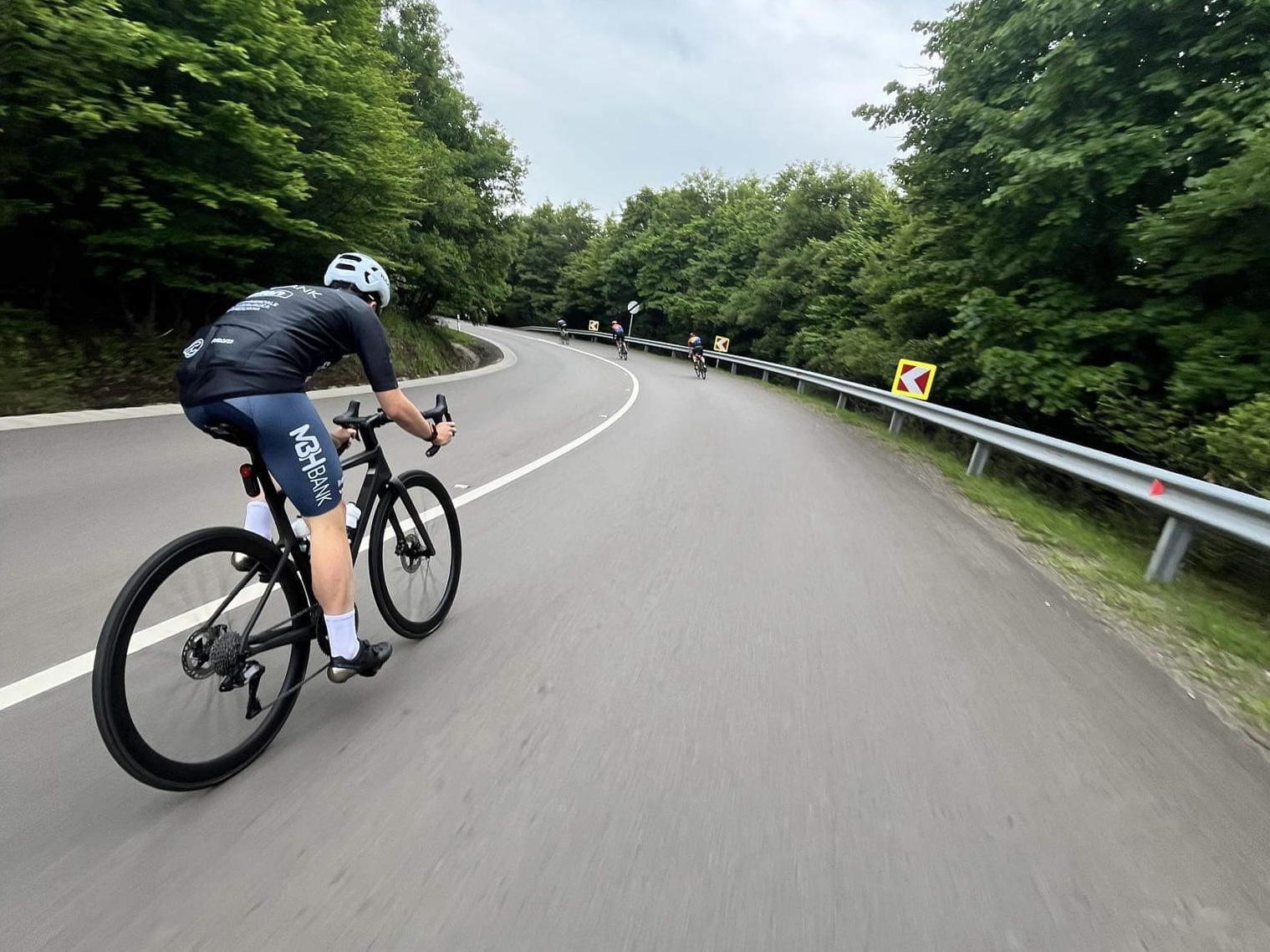
I’ve talked before about the sacrifices that come with elite sports. And I’ve mentioned failure, too. Burnout comes from a combination of these two—plus the feeling that all that energy you’ve poured in was for nothing. If, on top of it all, you get hit with criticism, whether fair or unjust, at the worst possible moment—when you’re already fed up because something didn’t go your way despite giving it your all—you start to wonder why you’re even fighting for this.
Meanwhile, others are out at the movies, going to house parties, enjoying carefree summer vacations on beaches, in beautiful cities, or at least at Lake Balaton, with no responsibilities. They don’t have to worry about what they eat, don’t have to fit hours of training into every single day, and they don’t have to celebrate family holidays weeks late. They have a normal life. And here you are, grinding away, something doesn’t click, and as if feeling bad about it isn’t enough, you still have to listen to the criticism—whether it’s deserved or not, whether it’s wrapped up nicely or not.
That’s tough for anyone. And when you’re training day and night, with your mind constantly occupied by it, that’s a fast track to burnout. It starts with a loss of motivation and can end with you checking out of elite sports altogether.
If you feel like you’re at the beginning of this process, talk to yourself first, then to your family, and your coach. And if possible, reach out to a sports psychologist.
I never thought I’d ever see a psychologist in my life, let alone willingly. But when I stepped into the world of true elite sports, it became clear after just a few weeks that I needed to learn how to navigate this space properly, and the experience and help of a professional would be invaluable. I talked to my parents, and based on a recommendation from a cyclist we knew, we found a sports psychologist who has been a huge help and continues to be.
And of course, your coach and team leader play a big role in whether you burn out or stay motivated.
Injuries

Cycling is a dangerous sport. Without any heroics, I can say that every day we put ourselves on the line. Even just by training on public roads. If you’ve ever ridden a bike among cars, you’ll understand what I mean. We train over ten thousand kilometers a year on the roads and that’s just the training. We’ve got plenty of stories, and unfortunately, we often hear about a fellow rider getting into an accident.
In races, we ride in the peloton, inches from each other’s wheels, about half an elbow-width apart, averaging around 40 km/h, sprinting at 60-70 km/h, and sometimes reaching nearly 100 km/h on descents. Here, the smallest mistake can be fatal. That’s why we look out for one another.
But mistakes still happen, and so do mechanical issues. A flat tire, a pothole—anything.
That’s why we always wear helmets. Have you noticed that the more serious a cyclist is, the more likely they are to wear a helmet, even just for a quick grocery run? You should wear one too, because if we, who handle bikes with confidence, also wear them, there must be something to it.
Injuries are not our friends, but we always carry bandages and disinfectant so that if something happens, we can treat it as quickly and effectively as possible. On this page, I’ll go into more detail about what has worked best for me.
Pressure to perform
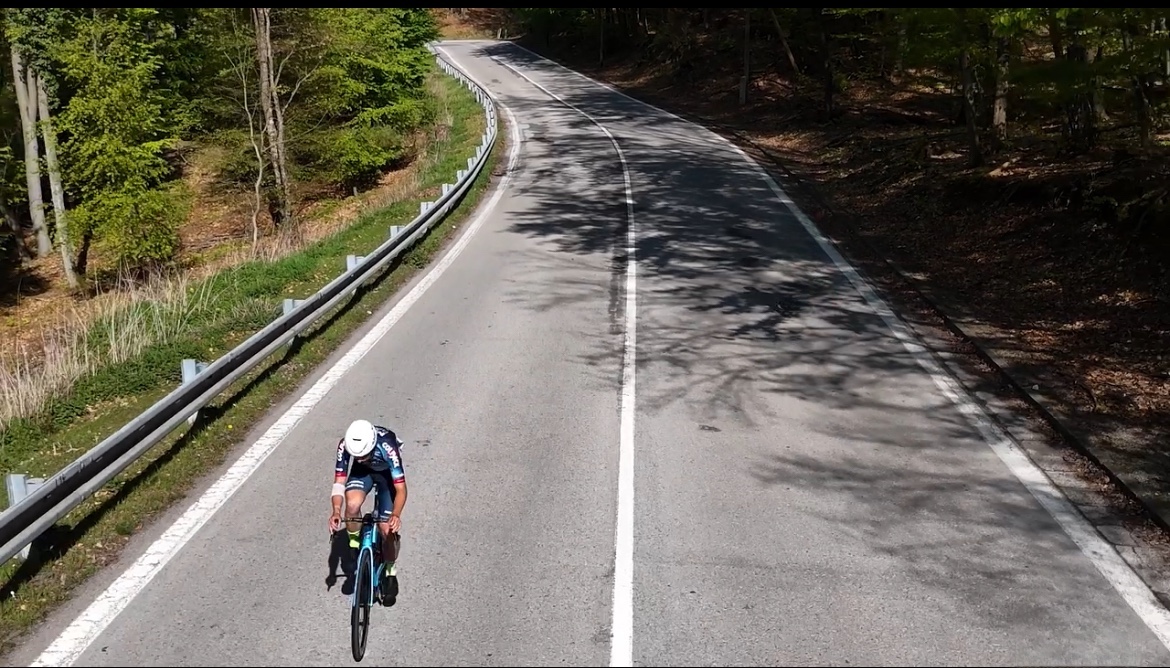
When we arrived at the Italian races, we were blown away by what we saw. These guys hit the pedals at the start line and go full gas all the way to the finish. And the broom wagon? It’s ruthless—truly ruthless. The time limit is set, and if at any point during the race you fall behind, whether due to a flat tire, a mechanical issue, or anything else, you’re pulled from the race immediately. It’s not uncommon for only 40 or 50 riders to finish out of 200 starters.
It’s a relief sometimes to race at home because the field isn’t as ferocious, and the broom wagon isn’t as merciless. At home, to get pulled, you practically have to quit the race. In Italy, if you’re not at 110%, you’re out.
Sometimes you laugh, sometimes you curse, and sometimes it really knocks you down. At one race, I finished well ahead of the broom wagon, leading a group for miles. They’d been on my wheel the whole time, and no one took a turn. We sprinted across the finish line, and I was happy to have salvaged an otherwise forgettable race. Then, about 30 minutes later, I saw the letters next to my name: OTL—Over Time Limit. They recalculated after the fact and pulled me out, along with 10-15 riders who finished just behind me. I missed the cut by 49 seconds. In 37-degree heat, with one bottle of water over 98 kilometers. Earlier, at the Tour, they had adjusted the time limit because of the extreme heat—here, they didn’t. Sometimes, life hits hard.
Food

CSAPAT
